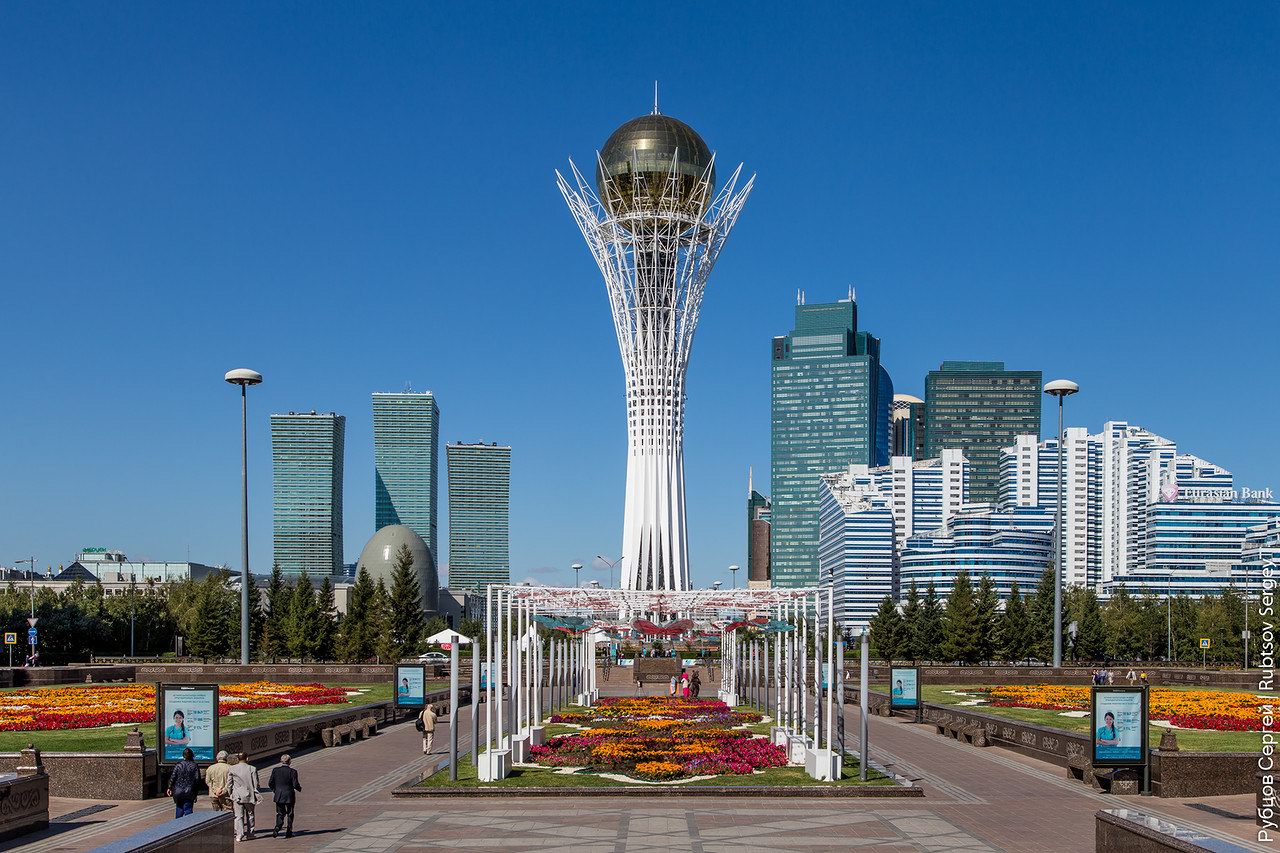
The dictator’s dividend: a monument in Astana, Kazakhstan, September 2016.
Autocracy’s Global Ascendance
As democracy flourished across the world, it was tempting to ascribe its dominance to its inherent appeal. If citizens in India, Italy, or Venezuela seemed loyal to their political system, it must have been because they had developed a deep commitmentto both individual rights and collective self-determination. And if Poles and Filipinos began to make the transition from dictatorship to democracy, it must have been because they, too, shared in the universal human desire for liberal democracy.
But the events of the second half of the twentieth century can also be interpreted in a very different way. Citizens across the world were attracted to liberal democracy not simply because of its norms and values but also because it offered the most salient model of economic and geopolitical success. Civic ideals may have played their part in converting the citizens of formerly authoritarian regimes into convinced democrats, but the astounding economic growth of western Europe in the 1950s and 1960s, the victory of democratic countries in the Cold War, and the defeat or collapse of democracy’s most powerful autocratic rivals were just as important.
Taking the material foundations of democratic hegemony seriously casts the story of democracy’s greatest successes in a different light, and it also changes how one thinks about its current crisis. As liberal democracies have become worse at improving their citizens’ living standards, populist movements that disavow liberalism are emerging from Brussels to Brasília and from Warsaw to Washington. A striking number of citizens have started to ascribe less importance to living in a democracy: whereas two-thirds of Americans above the age of 65 say it is absolutely important to them to live in a democracy, for example, less than one-third of those below the age of 35 say the same thing. A growing minority is even open to authoritarian alternatives: from 1995 to 2017, the share of French, Germans, and Italians who favored military rule more than tripled.
As recent elections around the world indicate, these opinions aren’t just abstract preferences; they reflect a deep groundswell of antiestablishment sentiment that can be easily mobilized by extremist political parties and candidates. As a result, authoritarian populists who disrespect some of the most basic rules and norms of the democratic system have made rapid advances across western Europe and North America over the past two decades. Meanwhile, authoritarian strongmen are rolling back democratic advances across much of Asia and eastern Europe. Could the changing balance of economic and military power in the world help explain these unforeseen developments?
That question is all the more pressing today, as the long-standing dominance of a set of consolidated democracies with developed economies and a common alliance structure is coming to an end. Ever since the last decade of the nineteenth century, the democracies that formed the West’s Cold War alliance against the Soviet Union—in North America, western Europe, Australasia, and postwar Japan—have commanded a majority of the world’s income. In the late nineteenth century, established democracies such as the United Kingdom and the United States made up the bulk of global GDP. In the second half of the twentieth century, as the geographic span of both democratic rule and the alliance structure headed by the United States expanded to include Japan and Germany, the power of this liberal democratic alliance became even more crushing. But now, for the first time in over a hundred years, its share of global GDP has fallen below half. According to forecasts by the International Monetary Fund, it will slump to a third within the next decade.
At the same time that the dominance of democracies has faded, the share of economic output coming from authoritarian states has grown rapidly. In 1990, countries rated “not free” by Freedom House (the lowest category, which excludes “partially free” countries such as Singapore) accounted for just 12 percent of global income. Now, they are responsible for 33 percent, matching the level they achieved in the early 1930s, during the rise of fascism in Europe, and surpassing the heights they reached in the Cold War when Soviet power was at its apex.
As a result, the world is now approaching a striking milestone: within the next five years, the share of global income held by countries considered “not free”—such as China, Russia, and Saudi Arabia—will surpass the share held by Western liberal democracies. In the span of a quarter century, liberal democracies have gone from a position of unprecedented economic strength to a position of unprecedented economic weakness.
It is looking less and less likely that the countries in North America and western Europe that made up the traditional heartland of liberal democracy can regain their erstwhile supremacy, with their democratic systems embattled at home and their share of the world economy continuing to shrink. So the future promises two realistic scenarios: either some of the most powerful autocratic countries in the world will transition to liberal democracy, or the period of democratic dominance that was expected to last forever will prove no more than an interlude before a new era of struggle between mutually hostile political systems.

The article appeared in the Foreign Affairs magazine, COMMENTMay/June 2018 IssuePolitics & SocietyDemocratization








